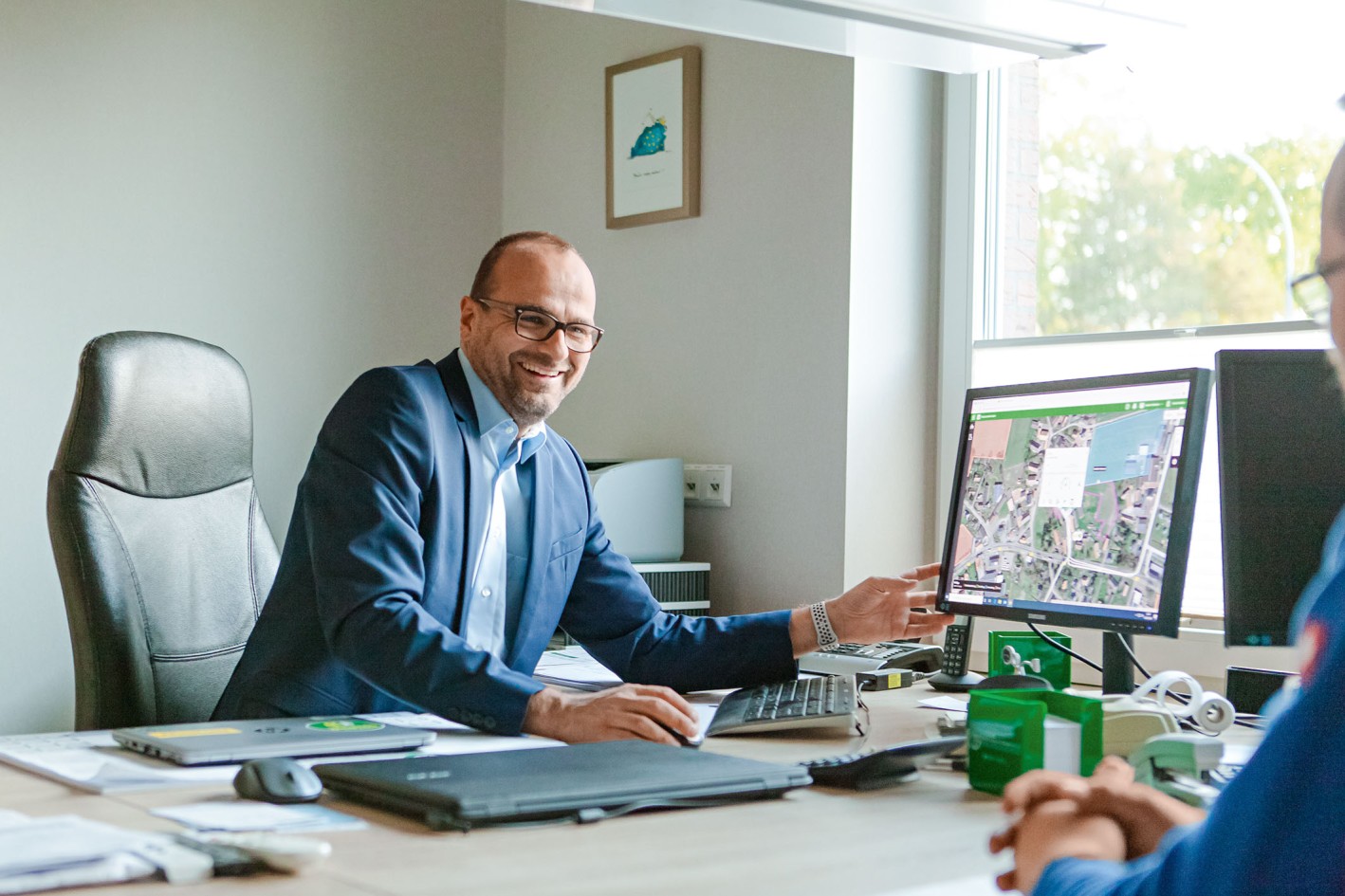

Is Digital Agriculture Paving the Way for Road Construction?
In this interview, Torsten Kreutzer, Project Manager Construction Execution Systems at the Wirtgen Group, talks about his initial experiences within the Wirtgen Group and how to use the synergies with John Deere.
Mr. Kreutzer, you were previously with the John Deere corporation. What’s your general impression of the Wirtgen Group’s R&D departments? How innovative do you consider the company to be?
The Wirtgen Group’s product brands are the clear technology and market leaders in their respective niches. This is also apparent when you work with the developers and experts. It’s really impressive to see how passionate they are about progress here. Due to the product brands’ high degree of specialization, the development process is also much more complex than I initially imagined.
What do you think is the secret to success behind why the Wirtgen Group’s product brands set technological standards?
The high degree of specialization certainly plays a major role, but also how close the company is to its customers. The developers directly interact with the users of the machines and incorporate requests and suggestions from the field directly into the development process. Many developers are also application experts and can discuss ideas and feedback with machine operators as peers. They speak the same language. This is why newly developed features and products are so well received by the machine operators.
“The developers directly interact with the users of the machines.”
Torsten Kreutzer, Project Manager Construction Execution Systems at the Wirtgen Group
What’s your assessment of the synergies that will result from working with John Deere at the development level?
There is tremendous potential here. When it comes to telematics and control technologies, we can benefit from our John Deere colleagues’ experience. Hardly any other sector is as far along in implementing the methodological approaches of Industry 4.0 as agricultural engineering. So it makes sense to analyze these approaches and apply them to the road construction sector where appropriate.
Does this imply that the road construction sector is lagging behind in terms of technological advancement?
No, because we can’t compare apples and oranges. When looking at machine technologies, agriculture and road construction certainly have a lot in common. But the two sectors have very different requirements when it comes to operating processes and logistics. This becomes clear when we consider digitization, for example.
What do you see when it comes to digitization?
One reason that digitization in the road construction sector isn’t as far along is that the various different activities that make up a construction project are often isolated as “job sites within a job site” and are also carried out by different contractors. This has slowed down the large-scale introduction of digital assistance systems in the industry. As the technology leader, however, the Wirtgen Group was quick to lay the foundations for the digitization of its construction machinery. Today, process sequences and details are comprehensively documented and the collected data becomes part of a digitally connected job site analysis.
How open do you think machine users are to digitization or telematics solutions in general?
The majority are immediately impressed with digital technologies as soon as they see that, for example, automatic documentation can increase quality and simultaneously ensure that it can be achieved with reliability. The possibilities they offer with respect to preventive machine maintenance and remote monitoring are also greatly appreciated. Our customers already benefit from the big data collected from Wirtgen Group machines, which we make available to them via our WITOS Fleetview fleet management system.
Where do you think future development is heading? What are some potential challenges?
It’s always difficult to make specific predictions since they depend on a wide variety of different factors. New communication standards such as 5G will certainly prove to be extremely beneficial in the further development of future telematics solutions. They will allow us to transmit data much faster with increased bandwidth and therefore also enable our customers to use it more efficiently. One of the main challenges will also be to better integrate the many individual road construction processes into a combined solution. This would help the industry take a major step towards Industry 4.0. The Wirtgen Group has already come a long way with the telematics solutions for its technologies.
On a final note, let’s take another look at the synergies with John Deere. Can you share some of the specific details as they pertain to your project?
The collaboration with John Deere and the Wirtgen, Vögele, Hamm, Kleemann, and Benninghoven development teams is going extremely well. The benefits for the Wirtgen Group became clear very quickly. John Deere supports our development activities with its own manpower, provides us with insights into the knowledge they have acquired, and is adapting to our challenges. We are working towards a common goal, and this gives us a competitive advantage. Many John Deere technologies and the development expertise that we now have full access to would have been difficult for the individual Wirtgen Group companies to achieve through their own development efforts and with their own budgets. Or at least not this quickly. So in the end, we are all taking a giant leap forward.